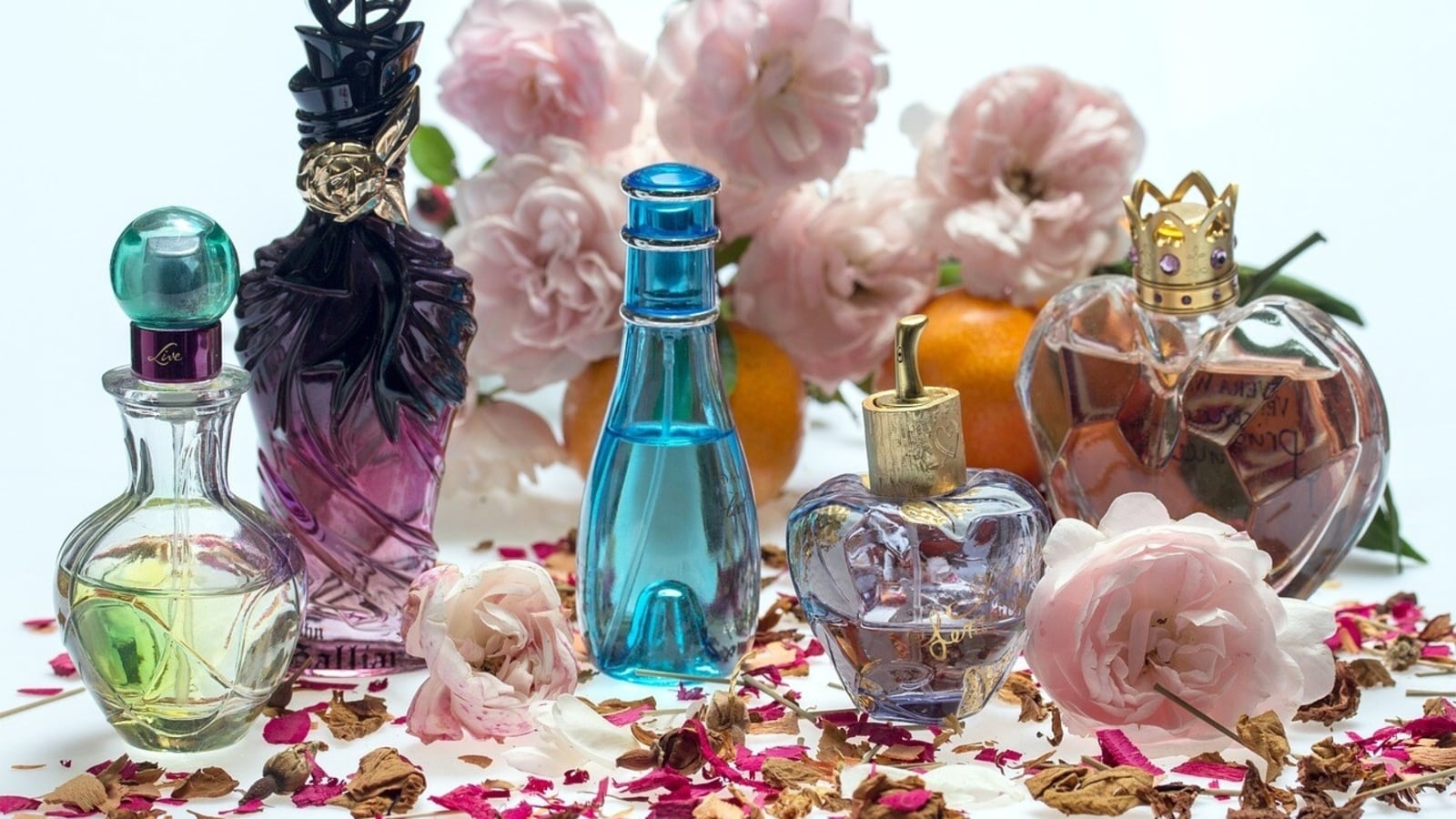In today’s fast-paced and demanding world, it’s no surprise that stress has become a common and often overwhelming part of our lives. From work responsibilities to personal relationships, there are endless sources of stress that can take a toll on our physical and mental well-being. That’s why finding effective ways to manage stress is crucial for maintaining a healthy balance in our lives.
One promising approach to reducing stress and promoting relaxation is through the use of aromatherapy. This ancient practice involves the use of essential oils extracted from plants to promote physical and emotional well-being. In this article, we will explore the science behind aromatherapy, its potential benefits for stress reduction, and some of the best essential oils to consider for relaxation and calm.
Aromatherapy: An Ancient Practice with Scientific Basis

The use of scented oils for therapeutic purposes can be traced back to ancient civilizations, including Egypt, Greece, and China. In these cultures, essential oils were widely used for religious ceremonies, medicinal treatments, and as a way to induce relaxation. The belief was that the pleasant scents had divine powers that could heal the body and mind.
However, modern science has shed light on the actual mechanism behind the beneficial effects of aromatherapy. Our sense of smell is directly connected to the limbic system, a complex network of brain structures responsible for emotions, memories, and behavior. When we inhale or apply essential oils, their scent molecules interact with receptors in our nasal passages, sending signals to the brain and triggering various physiological responses.
One of the key components of the limbic system is the amygdala, which plays a crucial role in regulating our emotional responses. It receives information from our senses, including smell, and initiates the release of hormones and neurotransmitters that can influence our mood, stress levels, and overall well-being. With this understanding, we can harness the power of essential oils to target specific areas of the brain and promote relaxation and calm.
Essential Oils for Relaxation and Calm
When it comes to choosing essential oils for stress reduction and relaxation, there are a variety of options to consider. However, not all essential oils are created equal, and some have been scientifically proven to have more potent calming effects than others. Here are some of the most popular and effective essential oils for relaxation and calm:
Lavender Oil
Lavender is one of the most well-known essential oils for promoting relaxation and reducing stress. Its calming effects have been extensively studied, and research has shown that inhaling lavender oil can reduce anxiety and improve sleep quality. One study even found that participants who inhaled lavender oil before a stressful task reported less anxiety and performed better on the task compared to those who did not use the oil (1).
Aside from its calming properties, lavender oil also has anti-inflammatory and analgesic effects, making it useful for alleviating tension headaches and muscle soreness caused by stress. You can use lavender oil by inhaling it through a diffuser, adding it to a warm bath, or applying it topically to your temples, neck, or chest.
Chamomile Oil
Chamomile has long been known for its soothing and relaxing properties, and its essential oil is no exception. Studies have shown that chamomile oil may help to reduce anxiety and improve sleep quality when inhaled or applied topically (2). It can also be beneficial for reducing feelings of anger and irritability, making it an excellent choice for managing stress-related emotions.
Apart from its calming effects, chamomile oil also has anti-inflammatory properties that can help to alleviate symptoms of stress-induced conditions such as eczema and psoriasis. Additionally, it has a subtle and pleasant aroma, making it a popular choice for aromatherapy.
Bergamot Oil
Bergamot is a citrus fruit that is commonly used in the production of Earl Grey tea. Its essential oil has a refreshing and uplifting scent that can help to reduce stress and anxiety. Research has shown that bergamot oil can decrease cortisol levels, the hormone associated with stress, and promote relaxation (3).
Moreover, bergamot oil has antimicrobial properties, making it useful for boosting the immune system and preventing infections. It also has a mood-enhancing effect that can help to uplift your spirits and improve your overall sense of well-being. You can diffuse bergamot oil or add a few drops to your bathwater for a relaxing and rejuvenating experience.
Ylang Ylang Oil
Ylang ylang is a tropical flower native to Southeast Asia, and its essential oil is renowned for its calming and mood-stabilizing effects. Studies have shown that inhalation of ylang ylang oil can help to decrease blood pressure and heart rate, indicating its potential to reduce stress and promote relaxation (4).
Additionally, ylang ylang oil has been found to have sedative properties, making it beneficial for those struggling with insomnia or other sleep disturbances caused by stress. It has a sweet and floral scent, which can evoke feelings of joy, peace, and contentment. You can use ylang ylang oil by diffusing it, adding it to a carrier oil for a relaxing massage, or applying it to your pulse points.
Frankincense Oil
Frankincense is a resin derived from the Boswellia tree, and its essential oil has been used for centuries for its medicinal and spiritual properties. It has a warm and woody aroma that can help to calm and soothe the mind, making it useful for managing stress and promoting relaxation.
Research has shown that frankincense oil possesses anxiolytic properties, meaning it can help to reduce anxiety and promote a sense of calmness (5). It can also be beneficial for relieving symptoms of depression and improving overall mental health. You can diffuse frankincense oil or mix it with a carrier oil and massage it into your skin for a grounding and calming experience.
How to Use Essential Oils for Stress Reduction
Now that you know some of the best essential oils for relaxation and calm, you may be wondering how to incorporate them into your daily routine. There are several ways to use essential oils for stress reduction, and here are some of the most effective methods:
Diffusion
Using a diffuser is one of the simplest and most popular methods of enjoying the benefits of essential oils. A diffuser works by dispersing the essential oil into the air, allowing you to inhale its scent and experience its effects. There are many types of diffusers available, from ultrasonic diffusers to nebulizers, so you can choose the one that best suits your needs and preferences.
Topical Application
Many people prefer to apply essential oils topically, either by diluting them with a carrier oil or using them in a massage oil or lotion. Topical application allows the essential oil to be absorbed through the skin, where it can enter the bloodstream and reach different parts of the body. However, it’s essential to follow proper dilution guidelines and perform a patch test to avoid any adverse reactions.
Inhalation
Inhaling essential oils directly from the bottle or by placing a few drops on a tissue or cloth is another way to enjoy their benefits. This method is especially useful when you need immediate relief from stress and anxiety, as the scent molecules can quickly reach the brain and trigger a response. You can also add a few drops of essential oil to a bowl of hot water and inhale the steam for a more intense and targeted effect.
Precautions and Possible Side Effects
While essential oils are generally safe to use, it’s essential to take precautions to avoid any potential side effects. Always dilute essential oils with a carrier oil or use them in a diffuser unless otherwise stated. Never ingest essential oils without proper guidance from a certified aromatherapist, as this can be hazardous to your health.
Pregnant or breastfeeding women, young children, and individuals with certain medical conditions should consult their healthcare provider before using essential oils. If you experience any adverse reactions such as skin irritation, headaches, or respiratory issues, discontinue use and seek medical attention if necessary.
In conclusion, aromatherapy can be a powerful tool for reducing stress and promoting relaxation. By harnessing the scents of essential oils, we can tap into the therapeutic properties of plants and use them to our advantage. Whether you prefer the soothing effects of lavender or the uplifting properties of bergamot, there is an essential oil for everyone seeking a natural and holistic approach to managing stress.
It’s important to note that aromatherapy is not a substitute for professional medical treatment. If you are experiencing chronic stress or have underlying health issues, it’s essential to seek guidance from a qualified healthcare provider. However, incorporating essential oils into your self-care routine can be a valuable addition to your stress management toolkit and help you achieve a calmer and more relaxed state of mind.
